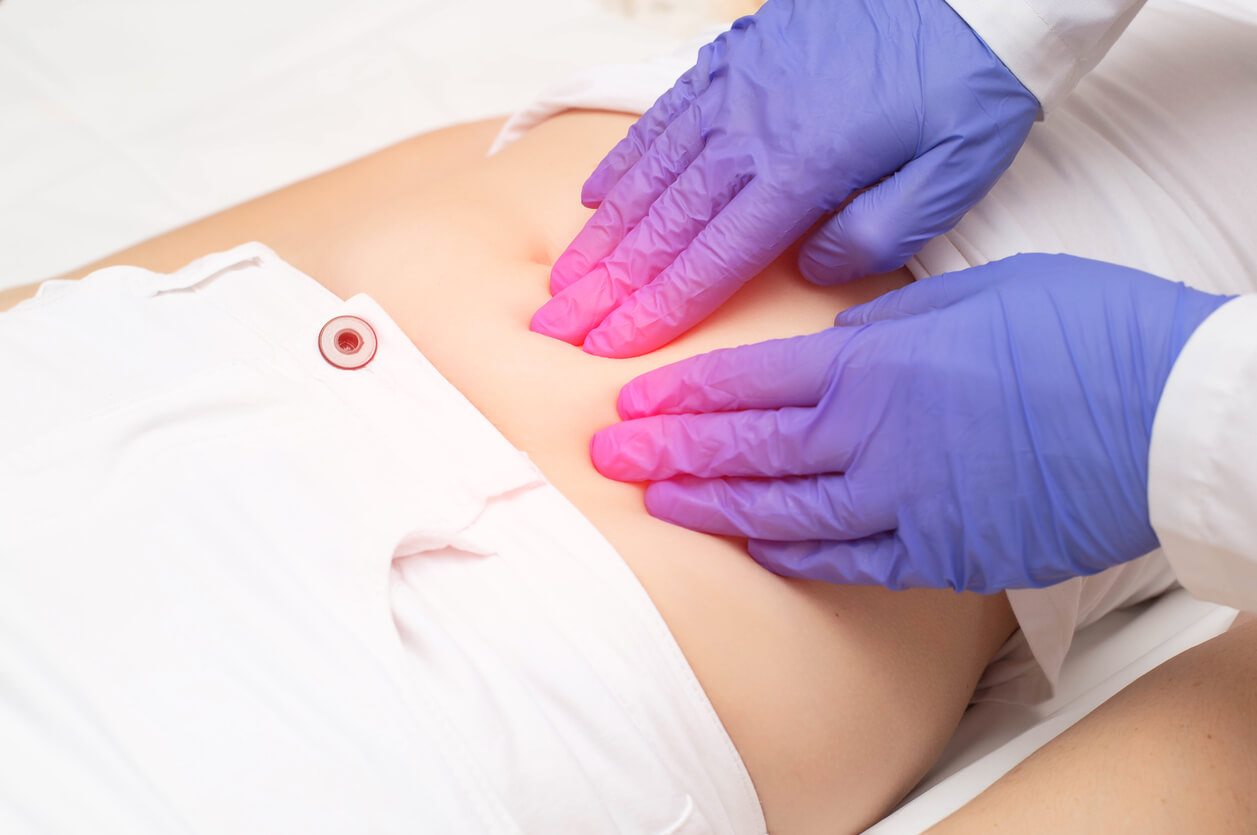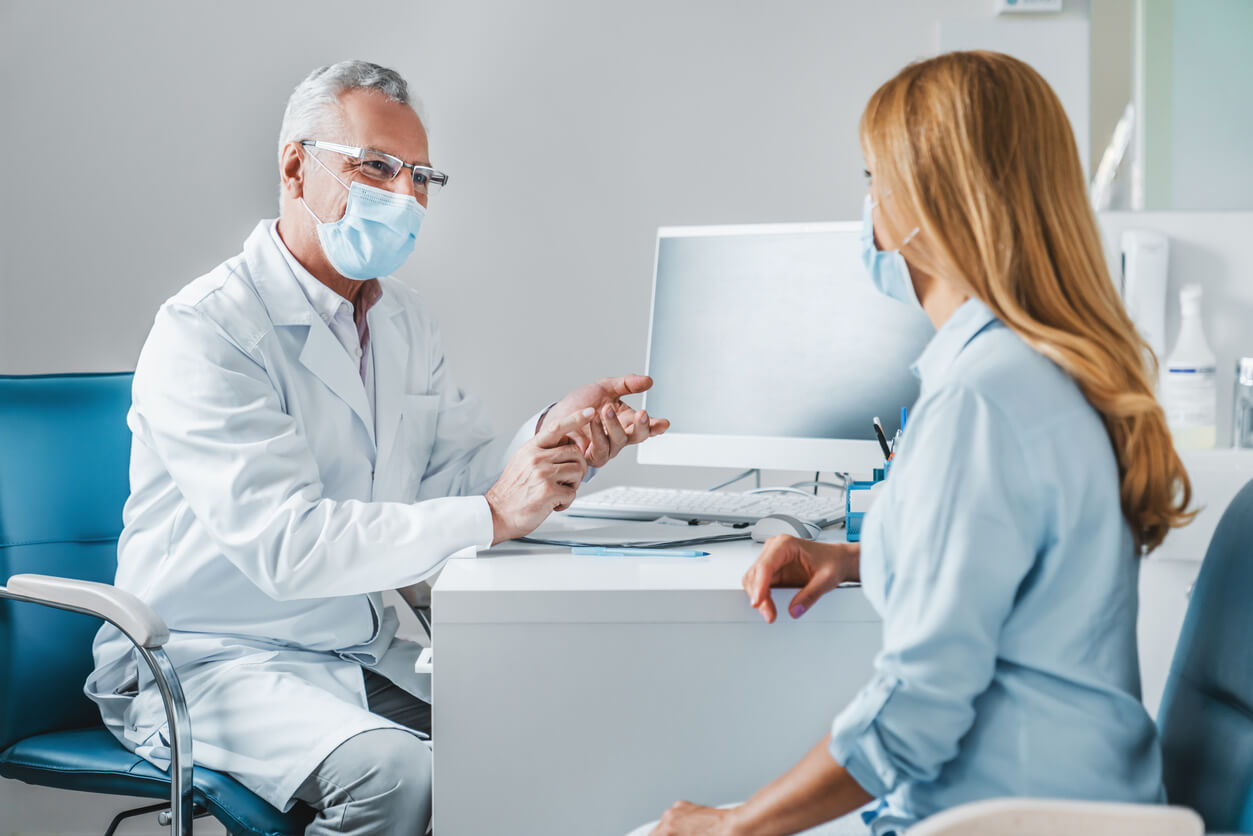Do you think you have an ovarian cyst? There are specific symptoms that can indicate if you are experiencing the problem or if your pain is from something else.
We will cover all the basics to help provide clarity on the issue throughout the article. This includes looking at what does ovarian cyst pain feels like, can you feel a cyst on your ovaries, and more.
What Is an Ovarian Cyst?
Ovarian cysts are as unpleasant as they sound. They consist of solid or fluid-filled sacs that develop inside ovaries. Unfortunately, the majority of women will face dealing with an ovarian cyst during their lifetime.
Why is this? It’s because, during the monthly ovulation cycle, cysts are most likely to occur. Although, in many cases, they develop and disappear in a short time without you even realizing it. Typically this is within a few weeks to a maximum of 3 months.
Extreme cases can result in cysts being an identifying factor that women have ovarian cancer. That’s why we recommend contacting your doctor if you’re concerned you may have ovarian cysts. It may be nothing, but it’s best to check.
What Does an Ovarian Cyst Feel Like?

When trying to understand what does an ovarian cyst feel like and wondering can you feel a cyst on your ovaries, many different symptoms are associated with the problems and pain that come along with ovarian cysts. Let’s take a look:
- Bloating
Bloating is a typical symptom when women are on their period. However, if bloating becomes more intense than usual, it could indicate ovarian cysts growing.
- Vomiting and nausea
Vomiting and nausea can occur if an ovary becomes twisted because of ovarian cysts. This pain can become so intolerable that it causes both nausea and vomiting.
- Fever
Fevers are a likely symptom when a cyst becomes infected. An infection can trigger a fever.
- Unexpected bleeding
Unexpected bleeding happens with the presence of ovarian cysts and can generally be a sign of concern. It may not necessarily mean cysts are present. However, the bleeding could be a sign to visit us. Our doctors can determine if bleeding irregularities are a cause for concern to avoid further complications from developing.
- Lower body pain
Lower body pain is one answer to what does ovarian cyst pain feel like. For example, those dealing with pain in the lower back or thigh region could be experiencing a symptom connected with having cysts. If this is the case, then it would be identified as ‘referred pain.’
- Pelvic pain
Pelvic pain is another answer to what does ovarian cyst pain feel like. It could be a combination of different sensations. For instance, if you notice a dull or sharp pain in your lower belly, it could be due to cysts.
In addition, the consistency of the pain can vary, which is why you should schedule an appointment with us if you are experiencing discomfort. Sometimes it can last for more extended time frames, or it can start and stop in a short timescale.
Unlike normal period pain, the feeling is usually more intense. This is because your body creates hormones during the menstrual cycle, making cysts develop or grow. Both of these begin the pain associated with the issue. as well. This could include color and less easy movements.
- Urination and Stool differences could be the result of ovarian cysts
- Urination and Stool differences
- Intercourse Pain
Intercourse pain can occur if you have an ovarian cyst. A type of cyst named endometrioma usually occurs in women that have endometriosis. This type of cyst is more likely to cause discomfort during intercourse. If you have endometriosis, your uterine tissue develops outside of the uterus leading to complications.
However, for the majority of women, having an ovarian cyst and sex shouldn’t be noticed. Only rare cases of having an ovarian cyst and sex will cause issues.
Other Symptoms Caused by Ovarian Cysts
Now we’ve covered what does an ovarian cyst feel like, let’s see the other symptoms that are associated with the condition:
- Inability to get Pregnant
- Cysts can develop as a result of a condition called polycystic ovary syndrome. This can then cause problems when trying to conceive a child.
- Random Weight Gain
- Although this symptom only occurs rarely, it’s still a possible indication of ovarian cysts. This is because the cysts becoming large and experiencing bloating can also increase weight measurements.
Diagnosing the Ovarian Cysts
A doctor will conduct a physical first to identify any cysts. The area in question will be the pelvic area. The objective will be to feel for any swelling that has developed by the ovaries.
Doctors also use other methods after a physical test, including:
- Ultrasound
- Laboratory tests
The health specialist will explain which method is necessary during the diagnosis process.
Treating the Condition
Not all women that have developed ovarian cysts will require treatment. For information relating to what course of treatment is best for you, contact our office. After the diagnosis, our healthcare professionals will discuss the ideal course of action.
According to OASH, only 8% of patients need treatment when dealing with this condition. Therefore, a doctor will carefully assess your symptoms to see if treatment is needed. They will look at:
- The size
- The location
- Your age
- Other relevant health conditions
If treatment is necessary, the first approach would be to monitor the cyst to see if it disappears within a few months. During this time, the doctor will most likely provide pain medication to reduce the impact of the symptoms.
If this doesn’t work, your doctor may suggest surgery.
Surgery Options
When a quick response is needed to remove the ovarian cysts, your doctor will use two main procedures to remove them. The procedures consist of:
- Laparoscopic procedures
- The process involves a small number of tiny incisions to remove the cysts.
- Laparotomic procedures
- For larger cysts, your doctor will use laparotomic procedures. They will create an incision in your abdomen to remove the cysts. This incision is somewhat more extensive than the laparoscopic procedures.
Your healthcare provider will always discuss which option is relevant to your case before they perform the procedure. Make sure to ask any necessary questions you may have.
What Happens if They’re Left Unchecked?

As mentioned, most cases do not require any further action, and after a few months, the cysts should disappear. However, there is the possibility that they have developed due to the result of more severe issues. Some of these are:
- Polycystic ovary syndrome (PCOS)
- Pelvic inflammatory disease (PID)
- Ovarian cancer
- Endometriosis
All of these problems can be dangerous if not checked.
Talking to a Health Specialist
We covered a lot of information about the different symptoms caused by ovarian cysts. However, each case is unique to the woman experiencing it. Therefore, we always recommend contacting us for a check-up.
Carreras Medical Center is located in Hialeah, Florida. We provide comprehensive advice and treatments for a range of conditions. If you’re interested in learning more about us, contact us today to book an appointment.


